"If we weren't successful in sport you wouldn't have even heard of us," he says. "Many, many countries around the world which have a far bigger population than us ... also export sheep and butter."
Dalton, CEO of defending America's Cup champion Team New Zealand and one of the country's most decorated sailors, has raced around the world seven times. Talking to him you get the impression there are more than a few airport staff who have had the pleasure of listening to him talk about the country's sporting success.
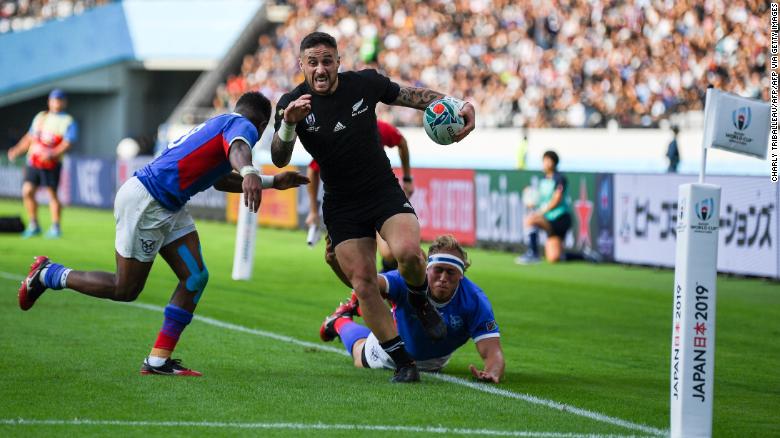
The All Blacks have won the last two World Cups. No team has won three titles in succession -- but few countries are as devoted to the sport or as talented as New Zealand.
"Rugby in New Zealand is like a religion," former All Black Dan Carter.
"You're wanting to do the history proud, the public proud and you make sure you do everything you possibly can for that little country down at the bottom of the world."
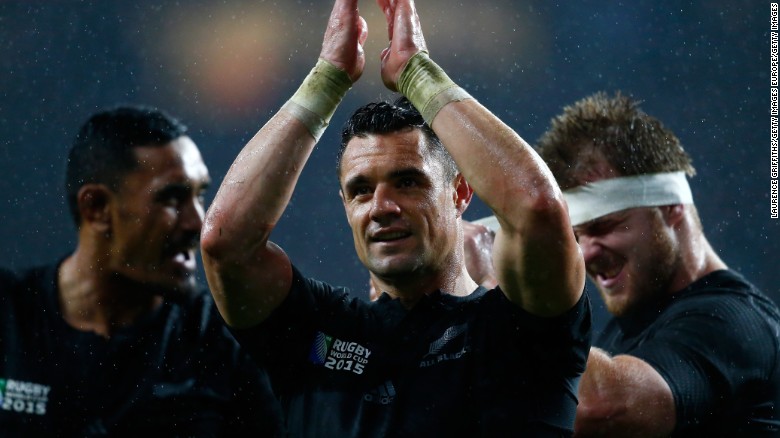
But this is not just about rugby -- this is about how that "little country down at the bottom of the world," that Carter refers to, has managed to compete against the bigger nations so successfully across a range of sports.
'Punch above our weight'
For a country with a population under five million, its prowess on the sporting stage has always appeared to be disproportionate.
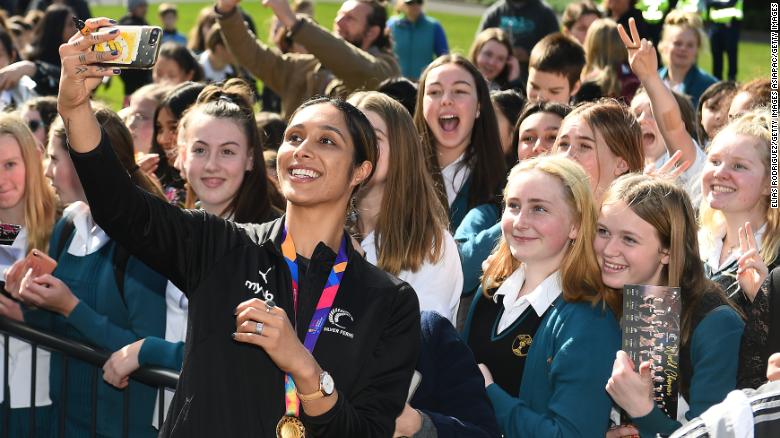
Phoenix Karaka at the New Zealand Silver Ferns public reception following the 2019 Netball World Cup.
Olympic champions in rowing, sailing, canoeing, home of the America's Cup-winning Team New Zealand, and a force in track cycling, New Zealand's success in sports is not an accident but a byproduct of its society.
Though there are a range of factors responsible, both size and geography have played a key role in New Zealand's sporting success, according to Toni Bruce, Professor of Sociology of Sport at the University of Auckland. Bruce, who has been researching the meaning of the Rugby World Cup to New Zealanders, believes the country's relationship with Britain, its geographical location and early success in sport have all contributed to its modern-day success.
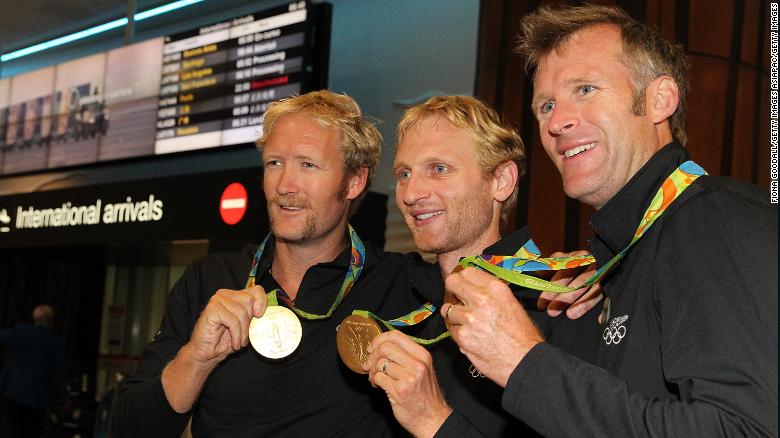
Olympic rowing gold medalists Eric Murray (left), Hamish Bond (center), and Mahe Drysdale with their 2016 medals.
"I think the question really comes down to who we think we are as New Zealanders," Bruce told CNN.
"We are pretty small, there's not a lot of us and we kind of punch above our weight as we like to say. I think that's partly because we've been successful in sport and it's one of the few places where we've been able to be visible on the international stage.
https://edition.cnn.com/specials/sport/rugby-world-cup-japan-2019-spt-intl
"I do think the size of the country and the fact we're a relatively new nation, we were never really locked into any set ideas about who we would be or who we were. That gave a kind of freedom to develop a sense of identity.
"Also, we're a long way from everywhere. Access to resources was really expensive and so there's a set of values I think we take for granted which are actually quite advantageous in sport. So things like adaptability, resourcefulness, there's a really strong sense of egalitarianism."
All Blacks
Bruce cites New Zealand's successful 1905 rugby tour to Britain where the All Blacks won 34 of its 35 games as the moment where the mindset within the country began to shift. That tour, and Britain's decision to grant New Zealand "Dominion Status" two years later, were both pivotal in convincing New Zealanders of their place in the world, Bruce says.
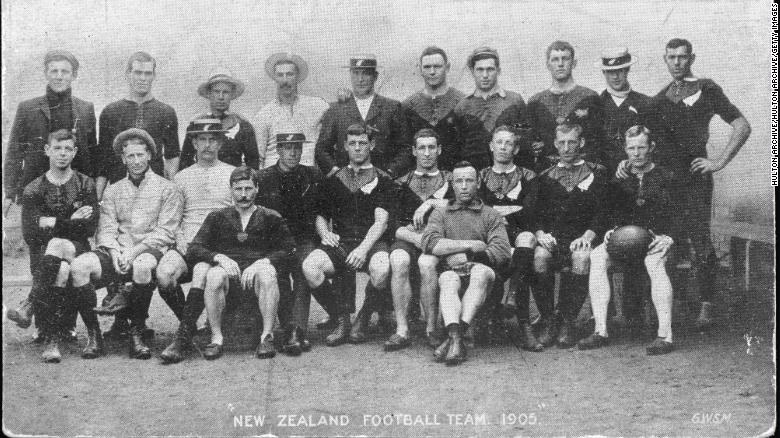
The New Zealand rugby team before its tour of Britain, September-December 1905. By the end of the tour, the team had, for the first time, become known as the "All Blacks."
"Success started early," Bruce said. "People talk about the 1905 rugby tour to Britain and that was a really successful tour. That kind of cemented rugby's place as maybe one of those areas of cultural highs that we should give attention to.
"One of the things we often find as researchers is that there's often a connection between what becomes important and whatever cultural issues or questions we're asking ourselves at the time.
"Around that time of Dominion, there was a sense of what does it mean to be a New Zealander? Are we just little Englanders? How do we mark ourselves out as different? So, what kind of repeatedly became a way we could show we were a unique people?
"Sports, historically and for a long time, has been one of those places where our sports people, both men and women, have been at the top of the world consistently. We have really built a sense of who we are around sport."
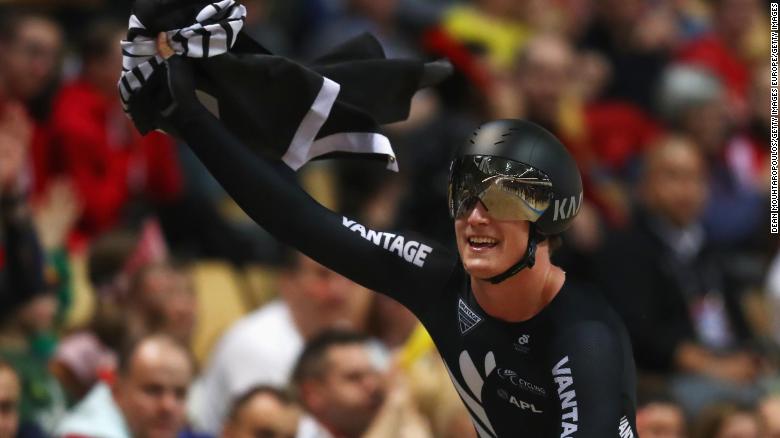
Campbell Stewart of New Zealand celebrates winning the gold medal in the Men's Omnium final at the UCI track cycling World Championships in March.
The success New Zealand has enjoyed in sport has spawned a culture that encourages it to be played as far and widely as possible.
Specialization, choosing just one sport to focus on, is generally discouraged and schools offer a number of activities for students. According to the 2018 New Zealand Secondary School Sports Census, netball was the most popular sport to be played by students, just ahead of rugby union, with basketball and soccer third and fourth respectively.
"There is substantial evidence from recent years showing the importance of variety," Jamie Douglas, Performance Scientist for the New Zealand Track Sprint Cycling team, told CNN.
"The dangers of early specialization have been found out. There have been obviously certain cases where the early specializers have been successful and I think there could be a little bit of survivorship by it in that you don't see all the cases that haven't been successful from that paradigm.
"New Zealand has a very small population relatively speaking so we can't get away with those black-and-white dichotomy approaches where we try and force the athletes to conform to this particular system of training or specialization. We have to be a little more individualistic in the approach."
Kids programs
Weekends are also crucial in nurturing a love of sport, according to Richard Pithey, head of New Zealand Cricket's national youth coaching program.
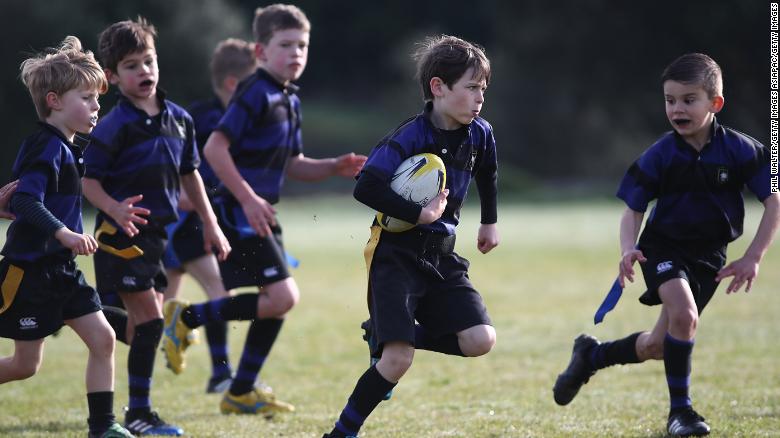
Children play rugby during an Auckland Rippa Rugby Junior Rugby match at Cox's Bay Reserve on August 5, 2017, in Auckland, New Zealand.
He says that most children join a club and play at least one summer and one winter sport. "Saturday sport is a culture in New Zealand," Pithy told CNN.
"Those that live in small or medium-sized rural towns in particular often play multiple sports. Early specialization is discouraged to the extent that Sport New Zealand have a website 'balance is better,' which promotes this philosophy.
"Parents obviously play a very important role in this, as most have been brought up playing sports so they naturally encourage their kids to play as well.
"Most youth sport is coached by parents so they are usually involved one way or another. Informal play in the backyard or school playground, e.g. backyard cricket is also very common and the benefits of this shouldn't be underestimated.
"Most sports have introductory programs which are age and stage appropriate to ensure the kids' experiences are fun and enjoyable. Junior coaches are encouraged to create an environment where kids enjoy their experiences, learn new skills through fun games or activities and come back the following season."
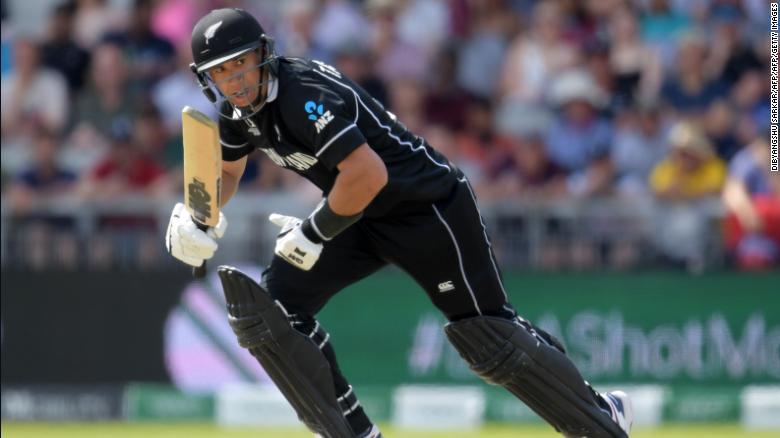
New Zealand's Ross Taylor watches the ball after playing a shot during the 2019 Cricket World Cup group stage match between West Indies and New Zealand in June.
Ross Taylor, the highly experienced New Zealand cricketer, told CNN he believes his career benefited from playing hockey as a youngster.
"You're encouraged to get into it and try a few sports not just one," Taylor said. "I played hockey and cricket was my main one but you played rugby, touch, netball, basketball, all those sports are encouraged to get in there and my kids are no different. They try and get out there and explore and have a bit of fun as well.
"Obviously, playing sport all year round, they all complement each other very well and I guess the fitness as well, that component of it."
'Inbuilt determination born of being small'
New Zealand's success has not gone unnoticed, particularly within the governmental and diplomatic sphere, according to the country's minister for sport Grant Robertson.
Robertson, an avid cricket fan and a one-time ball boy during the British and Irish Lions' visit to Dunedin in 1983, says he can barely hold a meeting without someone wanting to talk to him about the All Blacks or New Zealand's sporting achievements.
While the All Blacks have become a global brand, Robertson, who is also the country's finance minister, says the performances of the men's cricket team has opened up a market in India such has been the admiration for the way the Black Caps play the game.
He believes the value placed on sport within New Zealand culture has enabled it to thrive on the very biggest of stages.
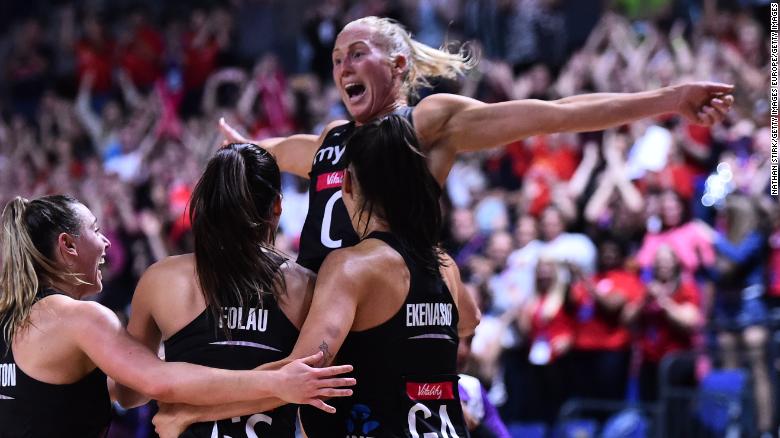
Laura Langman of New Zealand celebrates after the 2019 Netball World Cup final.
"There is something in the New Zealand psyche that really values sport," Robertson told CNN. "The other element is that we've chosen our sports quite well in rugby, netball, cricket, they are sports that come from our history, where we are, they're not as widely played as say, football and maybe that has helped us a bit.
"In other sports like rowing, yachting, cycling, we have had success in those areas where we are up against big countries with big programs.
"New Zealanders do have some inbuilt determination born of being small, if you're the youngest kid in the family or the smallest kid in the classroom, you will fight twice as hard to get some because you kind of know that you need a sense of determination to get past that ...
"Some people call it being the underdog but it is that spirit of determination born of being a small country in inverted commas at the bottom of the world."
Robertson, who hopes to be able to witness another All Blacks World Cup triumph in Japan on November 2, is also aware how vital success can be in inspiring future generations to take up sport.
He cites the excitement generated by the exploits of the country's netball stars as evidence of the effect success can have on the population
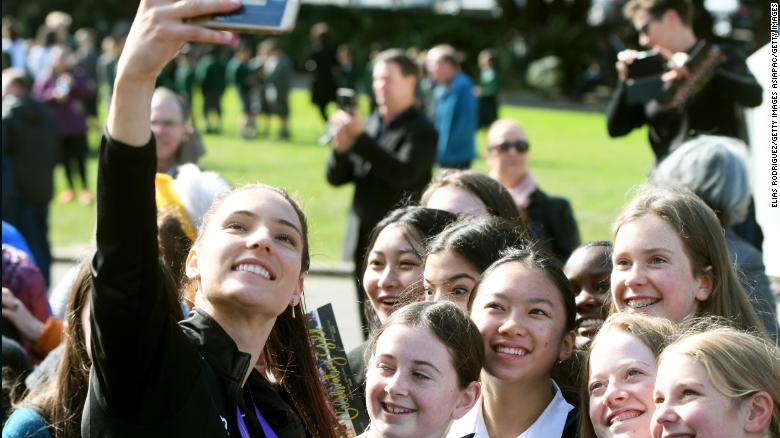
The New Zealand Silver Ferns attend a public reception following the 2019 Netball World Cup, at the New Zealand Parliament on August 26, 2019, in Wellington.
Olympic aim
New Zealand will hope for more heroes next year when the sporting world once again focuses on Japan and the 2020 Tokyo Olympics.
According to Kereyn Smith, chief executive of the New Zealand Olympic Committee, the team in Tokyo will have more athletes than ever before with over 200 expected to compete.
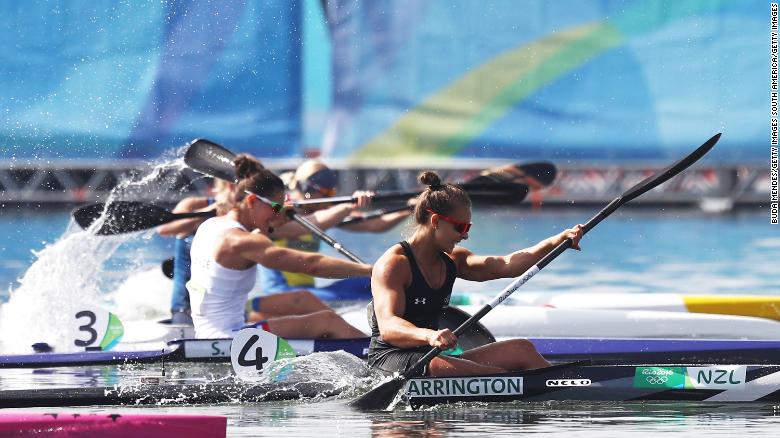
Kayaker Lisa Carrington of New Zealand won gold and bronze at the 2016 Rio Olympic Games.
At the 2016 Rio Olympics, New Zealand won 18 medals, four of those gold, making it the third most successful nation based on medals per capita. The total exceeded the previous best of 13 at the 1988 and 2012 games and marked the first occasion New Zealand women had won more medals at a Games than their male counterparts.
"I think that's part of living in a culture of knowing who you are, you're small, you're at the bottom of the world, and you're trying to always climb high mountains," Smith said.
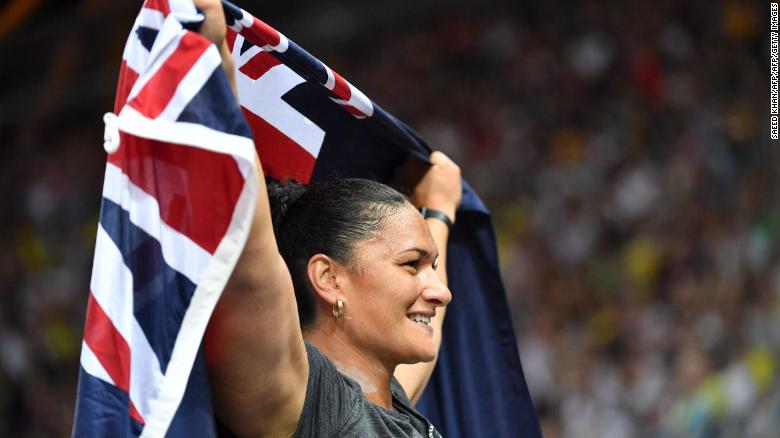
New Zealand's shot put star Valerie Adams is one of the country's most successful athletes.
"It's important to respect who you are, who you're playing and where you're going. I think that now we've become a little bit out from under the rock where we used to be, the underdog, trying to punch above our weight, now there's a move in that psyche to say, 'we can stand tall.'"
"Just because we're a small country it doesn't mean we can't be competitive and take on and beat the best."
Source: https://edition.cnn.com/2019/10/18/sport/new-zealand-rugby-world-cup-spt-intl/index.html
